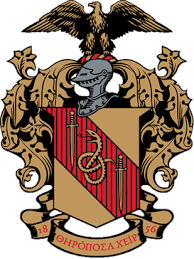Chapters & Community
Councils
At Salisbury University, sororities and fraternities, also known as chapters, are governed by four councils: the Interfraternity Council (IFC), the Multicultural Greek Council (MGC), the National Pan-Hellenic Council (NPHC), and the Panhellenic Association (PHA). Each of the four councils has unique chapters, traditions, and intake processes. Please see below for more information!
Chapters
Chapter Statuses
Below you will find the recognition status of all of our recognized fraternities and sororities at Salisbury University. In keeping with the University & Student Affairs expectation that sororities and fraternities be responsibly managed and participate as constructive members of the community, as a general rule, recognition will not be granted unless the sorority or fraternity chapter:
- Is a registered student organization with the University’s Center for Student Involvement & Leadership;
- Has a minimum of one (1) currently enrolled at Salisbury University undergraduate student members;
- Is in good standing with its International or National Headquarters.
- Is accepted by one of the four governing councils: the Interfraternity Council, the Pan-Hellenic Council, the Panhellenic Association, or the Multicultural Greek Council,
- Has reasonably complied with the Salisbury University Chapter Expectations established by the Division of Student Affairs and the OFSL. New sororities and fraternities must demonstrate a capacity to meet these requirements.
Grades & Interested Student Requirements
Academic excellence is a key pillar shared by the sororities and fraternities recognized by Salisbury University. All of our chapters have minimum GPA standards for their new and initiated members, and the university requires a 2.5 GPA and 12 credit hours to join a sorority or fraternity.
- Have completed at least 12 collegiate credit hours (AP courses & Dual Enrollment credits do not count);
- Be an enrolled, degree-seeking undergraduate student at Salisbury University;
- Have a cumulative GPA at or above a 2.5.
- Attendance at a University-sponsored Fraternity and Sorority Life 101 presentation.
- Salisbury University understands that there is often confusion surrounding the strict requirements for joining a Fraternity or Sorority Life chapter. Because these organizations require an invitation for membership, are often more time-consuming, and are associated with higher levels of risk, the requirements to join are much more rigid than those of general clubs and organizations. We often get questions about how these requirements were determined and what counts toward the various requirements. In an effort to be transparent and communicative, we have done our best to address some of those concerns below. If you do have additional questions or would like further clarifications, please don’t hesitate to reach out to our office!
We require that all students seeking membership in one of our chapters have completed at least 12 collegiate credit hours, either at Salisbury University or at a previous higher education institution. It is important to note that these credits must have been completed following the completion of a high school graduation or GED program. This means that neither AP/IB courses or dual enrollment credits will count toward this total. Essentially, we want to be sure that you have had time to adjust to the rigor of being a full-time college student for at least one complete semester before adding a commitment, such as Fraternity & Sorority Life membership, to your plate.
Further, we also require that all potential members have at least a 2.5 cumulative grade point average. As an institution of higher education, our first priority is to ensure that you are receiving a quality education that will prepare you for success after you leave us. Because of the time-consuming nature of these organizations, it’s crucial that you are succeeding inside the classroom before splitting your time further by pursuing membership in one of our chapters. Unfortunately, we do not round GPAs and have a hard cut-off line at the 2.5 mark. At the National level, all 17 of our organizations require at least a 2.5 cumulative average, and some require a GPA above that. Even if the University were to make exceptions or round GPAs, the National organizations would still restrict membership.
Lastly, our members are required to be enrolled, degree-seeking students at Salisbury University. Fraternities & Sororities are long-standing organizations in our Nation and at Salisbury University. To maintain their longevity and to ensure that members are investing in the organization the same way that the organization is investing in its’ members, all members must be degree-seeking students looking to become alumni of their organization and our institution.
Interested in learning more about Fraternity & Sorority Life? Complete the interest form by logging in with your SU credentials!
Resources & Policies
For Advisor
The Office Fraternity and Sorority Life is committed to providing a high level of support for the fraternity and sorority chapters and members with whom we work. A key component of the work we do is our partnership and collaboration with inter/national organizations, volunteers, and chapter advisors. The role of the chapter advisor is extremely important, and we are committed to supporting you as you work with students on our campus. Your key touchpoints with FSL should be the Coordinator for Fraternity & sorority Life for your chapter and your chapter coach.
Role of the Chapter Advisor
Each advisor may perceive their role with their fraternity or sorority differently. Some advisors take an active role by attending weekly meetings, meeting with chapter officers, and overseeing programs and projects. Others might have a less active role. Our hope is that each chapter in our community will have an active chapter advisor who consistently communicates with the undergraduate members about chapter operations, the purpose of their organization, and assists them in decision-making. It is important to understand the expectations of the inter/national organization regarding their chapter advisors, so please access the resources provided by your organization.
Our Expectations
We require that each chapter have a chapter advisor who collaborates with our office staff to support fraternity and sorority members. While this role varies for each organization on our campus, our basic expectations include:
- Regularly attending chapter and executive board meetings.
- Communicating regularly with our office staff. Ensure you are receiving emails via the listservs maintained for chapter advisors and attend Advisor Circles as you are able.
- Communicating regularly with the inter/national organization to ensure the chapter fulfills its expectations.
- Asking chapter leadership about their recognition status and chapter expectations programming and helping them identify areas for improvement.
- Staying current with departmental policies that impact the students you advise.
For Families
Salisbury University has had a rich history with its collegiate fraternities and sororities, dating back to the mid-1970s. These organizations have played an important role in the university’s co-curricular programs, offering students an enriched out-of-class living and learning experience. Since their founding, fraternities and sororities at Salisbury have been integral to campus life, fostering involvement, leadership, and a sense of community among students.
Salisbury University strongly supports the ideals and goals of these organizations, which emphasize personal development, a connection to the university, and post-graduate engagement. These values include scholarship, leadership, community service, self-governance, and the development of both individual and group initiative, as well as interpersonal and social skills.
Policies
Recognition
Sororities and fraternities have a historical association with Salisbury University. When managed responsibly by international and local chapters, and officers, they offer students a valuable social and learning experience. It is the policy of the University, therefore, to offer eligible sororities and fraternities an opportunity to fulfill this purpose by extending them certain privileges, services, and resources.
Chapter Expectations
In the 2023-2024 academic year, the Office of Fraternity and Sorority Life, in collaboration with the Center for Involvement and Leadership and the Division of Student Affairs, introduced a new initiative designed to enhance the experience of Salisbury University’s fraternity and sorority chapters. This initiative is based on input from students, faculty, staff, and fraternity and sorority professionals, with a focus on helping chapters return to the core values upon which they were founded.
Drawing inspiration from successful models across the nation, the university has introduced a program aimed at reinforcing these values while fostering personal and academic growth. The new initiative builds upon the foundation set by previous efforts, including the “Foundation for the Future” program at other institutions, and is designed to elevate Salisbury University’s fraternity and sorority life communities through improvements in areas such as academics, leadership, and programming.
This renewed effort reflects Salisbury’s commitment to providing a strong framework for fraternity and sorority life, helping students develop leadership skills, engage in community service, and achieve academic success. As part of this, Chapter Expectations will serve as a key guide for the continued growth and development of fraternity and sorority life at Salisbury University.
Intake & New Member Policy
The Office of Fraternity & Sorority Life seeks to empower all of our recognized fraternities and sororities to uphold their guiding principles. Our belief is that every new member education and intake program should strengthen a new member’s academic excellence, civic engagement, individual respect & responsibility, and leadership development. Learn more about university expectations for new member intake and education below.
Council Specific Bylaws
Hazing Resources
What is Hazing?
Hazing is defined as any intentional or unintentional action taken or situation created, whether on or off campus, to produce mental or physical discomfort, embarrassment, harassment or ridicule for the purpose of initiation, admission or as a perceived condition of continued membership into any organization, including, but not limited to, sports clubs, athletic teams, fraternities or sororities that operate under the sanction of the University. Hazing is also defined in accordance with any applicable local, state or federal law or USM or University policy.


















